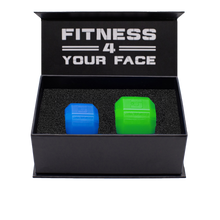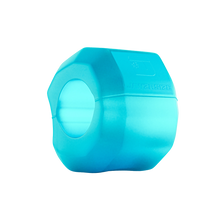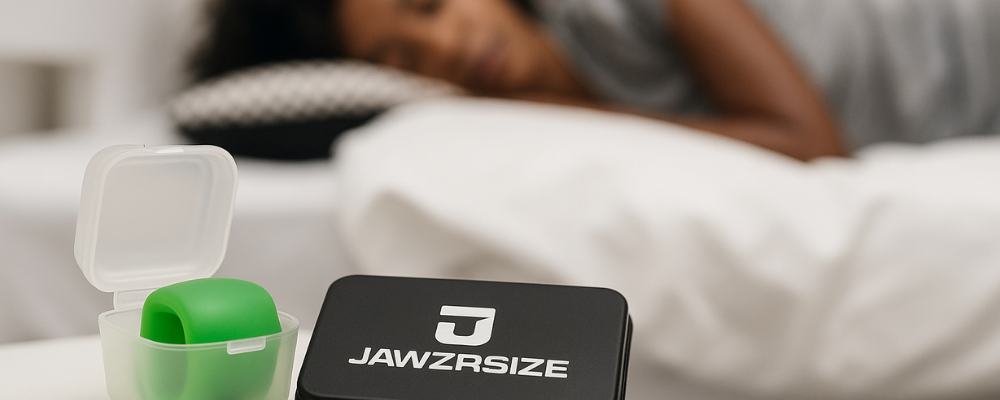Jaw disorders are conditions that impact the function, alignment, and comfort of the jaw, leading to pain and difficulty in performing daily activities such as eating, speaking, or yawning. These issues are more common than most people realize and can significantly reduce quality of life. Fortunately, solutions like Jawzrsize offer non-invasive support for managing jaw health. By understanding jaw disorders, including their causes, symptoms, and treatment options, individuals can find relief and strengthen their jaw health. For persistent or severe cases, consulting a healthcare provider remains essential to ensure safe and effective treatment.
Types of Jaw Disorders
Several conditions fall under jaw disorders, each with specific symptoms and causes. Here are some of the most common types:
1. Temporomandibular Joint (TMJ) Disorders
TMJ disorders refer to a range of conditions affecting the temporomandibular joints, which connect the jawbone to the skull and facilitate smooth jaw movement. These joints play a crucial role in daily functions like speaking, chewing, and yawning. When inflammation or misalignment occurs, it can disrupt these actions, causing discomfort or restricted movement. Common symptoms of TMJ disorders include persistent pain in the jaw, face, or neck, and audible clicking or popping sounds during jaw movements. In severe cases, the jaw may even lock in an open or closed position, restricting normal function.
Various factors contribute to TMJ disorders, from physical trauma, like a direct blow to the jaw, to more chronic issues such as arthritis, stress, and teeth grinding (bruxism). For many individuals, non-invasive interventions provide significant relief. Regular jaw exercises help strengthen the muscles around the joint, promoting better stability and reducing tension. Tools like Jawzrsize offer targeted exercises designed to improve jaw mobility, alleviate discomfort, and support overall joint health. However, in cases of persistent or severe symptoms, consultation with a healthcare provider is recommended.
2. Bruxism (Teeth Grinding)
Bruxism, often characterized by involuntary grinding or clenching of the teeth, is a condition that commonly occurs during sleep but can also happen during waking hours. This unconscious habit places a tremendous amount of pressure on the teeth and jaw, often resulting in jaw pain, headaches, and in severe cases, tooth damage or even fractures. Factors like stress, anxiety, and sleep disorders are known to trigger bruxism, and untreated cases can lead to long-term damage to the jaw and teeth.
Managing bruxism typically involves stress-reduction techniques, lifestyle adjustments, and sometimes the use of mouthguards to protect the teeth. Jawzrsize can serve as a complementary tool, providing gentle jaw exercises that help relieve the tension associated with bruxism. By strengthening and relaxing the jaw muscles, these exercises may alleviate discomfort and encourage better muscle control, which could reduce the intensity of clenching or grinding episodes over time.
3. Jaw Misalignment (Malocclusion)
Jaw misalignment, also known as malocclusion, occurs when the upper and lower teeth do not fit together correctly. This improper alignment can cause strain on the jaw, leading to difficulties in biting, chewing, and even speaking. Malocclusion can arise from various sources, including genetics, facial injuries, or the loss of teeth, which can disrupt the natural alignment of the jaw. Misalignment places additional stress on the TMJ and surrounding muscles, potentially leading to pain, clicking sounds, and even headaches.
While orthodontic treatments, such as braces or aligners, are often required to correct the alignment, jaw exercises can play a supportive role in enhancing muscle strength and stability around the jaw. Jawzrsize, for example, offers exercises aimed at bolstering the muscles involved in jaw movement. This non-invasive approach can complement other treatments by providing additional support to the jaw, promoting a more stable bite, and helping reduce any associated discomfort over time.
4. Jaw Fracture
A jaw fracture, or mandibular fracture, occurs when there’s a break in the jawbone, typically resulting from trauma such as falls, sports injuries, car accidents, or direct impacts. Jaw fractures can range in severity, from minor cracks to complex breaks involving displacement. Symptoms often include intense pain, swelling, bruising, and difficulty in opening or closing the mouth. Misalignment of the teeth or an abnormal bite may also be present, along with numbness in the lower lip due to nerve injury.
Treatment for jaw fractures varies based on the fracture's severity. Mild fractures may only require rest and soft diets, while severe cases often need surgical intervention and fixation to realign and stabilize the jawbone. During the recovery phase, exercises like Jawzrsize are not recommended until the jaw has healed sufficiently, as they may strain the affected area. However, once cleared by a healthcare provider, gentle exercises can help restore jaw strength and flexibility.
5. Myofascial Pain Syndrome
Myofascial Pain Syndrome (MPS) involves chronic pain and discomfort caused by tension in the myofascial tissues—connective tissues surrounding the muscles. MPS in the jaw area often manifests through trigger points that lead to pain in the jaw, neck, or shoulders, making basic activities like chewing, speaking, or even yawning painful. These trigger points can develop due to various factors, such as teeth grinding, stress, jaw misalignment, or poor posture.
Management of MPS in the jaw typically includes physical therapy, pain relief medications, and stress management techniques. Jawzrsize may assist individuals with MPS by promoting muscle relaxation and improving blood flow to the affected areas, alleviating tension. However, it's essential to start gradually, as overexertion could exacerbate symptoms. Consulting with a healthcare provider can help in creating a balanced approach to incorporating jaw exercises in MPS treatment plans.
6. Malocclusion (Misalignment of Teeth)
Malocclusion, or misalignment of the teeth, occurs when the upper and lower teeth do not fit together properly, placing additional stress on the jaw and facial muscles. This misalignment may arise from genetic factors, developmental issues, injuries, or habits such as thumb sucking during childhood. Symptoms of malocclusion include difficulty chewing, speech impediments, jaw pain, and even headaches or neck pain due to the uneven pressure exerted on the jaw.
Orthodontic treatments such as braces or aligners are often necessary for realigning teeth and improving bite function. Jawzrsize can support individuals with malocclusion by strengthening the surrounding muscles, contributing to greater jaw stability and potentially reducing strain. This muscle reinforcement may help reduce discomfort during orthodontic adjustments, although it’s essential to coordinate with dental care providers to avoid undue pressure on the teeth and jaw.
7. Jaw Muscle Spasms (Trismus or Lockjaw)
Jaw muscle spasms, also known as trismus or lockjaw, involve involuntary contractions of the jaw muscles, which restrict jaw movement and make opening the mouth challenging. This condition can arise from various causes, including trauma, infections, TMJ disorders, or even dental procedures. Trismus can cause severe discomfort and may interfere with eating, speaking, and oral hygiene.
Treatment for jaw muscle spasms often involves addressing the underlying cause, along with therapies to relax and reduce muscle tension. Jawzrsize may offer a supplementary benefit in managing mild cases by gently conditioning the jaw muscles to improve their flexibility and resistance to spasms. However, care must be taken to avoid overuse, as excessive strain could exacerbate symptoms. Patients experiencing persistent or severe trismus should seek medical advice, as specific exercises may be necessary to achieve gradual improvement without aggravating the condition.
Causes of Jaw Disorders
Jaw disorders can result from a variety of factors:
- Injury or Trauma: Accidents, sports injuries, or even certain dental procedures may put undue strain on the jaw, leading to pain and dysfunction.
- Stress and Anxiety: Many people grind or clench their teeth when stressed, which can lead to tension in the jaw. Regular use of Jawzrsize may help alleviate this tension, offering a proactive approach to managing stress-related jaw issues.
- Malocclusion (Misaligned Bite): Misaligned teeth can lead to uneven jaw pressure, causing discomfort and exacerbating jaw issues.
- Genetic Factors: Certain inherited traits, like jaw structure or joint flexibility, may predispose individuals to jaw problems. Jaw exercises can help maintain jaw strength and stability, offering a preventive measure for those with a family history of jaw issues.
Symptoms of Jaw Disorders
Jaw disorders may present with various symptoms, impacting not only the jaw but also nearby areas like the neck, shoulders, and ears:
- Jaw pain or tenderness that radiates to the neck or shoulders
- Clicking or popping sounds during movement
- Jaw joint locking, which limits opening or closing
- Headaches, particularly near the temples
- Earaches or tinnitus (ringing in the ears)
- Difficulty or discomfort while chewing or yawning
Persistent symptoms that disrupt daily activities should be evaluated by a healthcare provider to determine if additional treatments are necessary.
How Jawzrsize Supports Jaw Health
Jawzrsize is designed to help alleviate jaw discomfort by strengthening the jaw muscles and supporting jaw stability. It offers a non-invasive way to address symptoms and may benefit individuals with mild to moderate jaw disorders, especially those related to muscle weakness or tension. Through controlled, targeted exercises, Jawzrsize can help:
- Strengthen Jaw Muscles: Improved muscle strength can stabilize the jaw, reducing tension and supporting joint function.
- Promote Jaw Flexibility: Regular exercises can enhance range of motion, helping relieve stiffness.
- Relieve Stress-Related Jaw Tension: For those prone to clenching or grinding their teeth, Jawzrsize exercises encourage relaxation, reducing jaw strain over time.
When to Consult a Professional
While Jawzrsize can be effective for many people, it’s important to recognize when professional evaluation is needed. Severe or persistent symptoms like intense pain, prolonged jaw locking, or significant discomfort during eating or speaking should be assessed by a dentist, doctor, or TMJ specialist. In such cases, a professional can provide personalized recommendations and ensure that exercises like those offered by Jawzrsize complement other treatments safely.
Key Takeaway
Jaw disorders can significantly impact daily life, but many cases can be managed with non-invasive solutions like Jawzrsize, which offers an accessible way to strengthen and relax the jaw muscles. While professional medical treatment remains essential, exercises like those offered by Jawzrsize may serve as complementary support to manage symptoms in specific cases. By promoting muscle strength, flexibility, and relaxation, Jawzrsize can aid in improving jaw stability and comfort, though it’s crucial to consult healthcare providers for individualized guidance, especially in severe or persistent cases.
Frequently Asked Questions
| Question | Answer |
|---|---|
What types of jaw issues can Jawzrsize help with? |
Jawzrsize can help with TMJ-related discomfort, muscle tension, and mild jaw misalignment issues by strengthening jaw muscles and improving flexibility. |
Is Jawzrsize a substitute for professional care? |
No, Jawzrsize is a helpful tool for managing mild symptoms and supporting jaw health, but it’s not a substitute for professional care. Severe symptoms should be evaluated by a dentist or doctor. |
How often should I use Jawzrsize? |
Most users benefit from incorporating Jawzrsize exercises into their routine several times per week, starting gradually and increasing as comfort allows. |
Can Jawzrsize help with bruxism? |
Yes, Jawzrsize can aid those with bruxism by reducing jaw tension and promoting better muscle control. For severe bruxism, consult a healthcare provider for a comprehensive treatment approach. |
Are there any risks with using Jawzrsize? |
Jawzrsize is generally safe, but it’s best to consult a professional if you have pre-existing jaw conditions, as they can guide you on the best way to integrate it into your care routine. |







